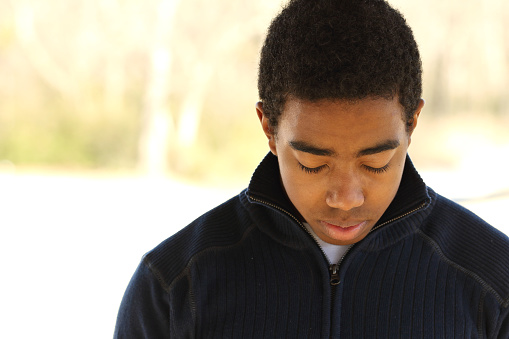
A statewide coalition of health care providers, advocacy groups and researchers is pushing for a major overhaul of California’s mental health care system for children and teens.
In a policy brief released this week, the recently formed California Children’s Trust said the state’s mental health system for youth is disjointed, messy, and overly focused on treating mental illness rather than preventing and identifying mental health problems early. As a result, suicides, mental health crises and hospitalizations among children and youth have skyrocketed over the past 20 years, according to the report.
The coalition is calling for a radical shift in how state and local governments finance, administer and run mental health services for young people. Alex Briscoe, the coalition’s principle and a formerAlameda County Health Care Services Agency director, said taking care of children’s mental wellbeing should be seen as just as important as looking after kids’ physical health.
Coalition partners include over 50 organizations and individuals involved in the children’s mental health field. Members will begin meeting in January to formulate recommendations for policymakers on how to change mental health care for kids, Briscoe said.
“Our goal is to build a movement and run a planning process,” he said. “It has not been a hard sell. There is no one involved in the social, emotional and developmental health of children that says yeah, we’ve got it figured…. We think we face a generational opportunity to reinvent the way we define, fund, administer and measure the social and emotional health of children.”
Mental health-related hospitalizations for youth in California have jumped 50 percent since 2007, according to the report, and the percentage of teens reporting mental health needs has skyrocketed. Nationally, the suicide rates have climbed by 30 percent since 2005, making it the second leading cause of death among youth ages 10 to 24.
Meanwhile, parental surveys suggest few children are receiving developmental screenings that could lead to early intervention, even though about a quarter of California children are at risk for developmental, behavioral and social delays, the report said.
Much of the coalition’s focus is on Medi-Cal, the state’s health insurance program for low-income residents, which serves a majority of kids in the state. An investigation by the California Health Report earlier this year found that the number of kids receiving mental health services through the program falls vastly short of the estimated need. Additionally, the percentage of children receiving those services varies sharply by county.
The children’s health advocacy group Children Now is among those that have joined the California Children’s Trust. Lishuan Francis, a senior health associate with the organization, said groups have worked on piecemeal solutions to improve mental health care for kids in the past, but the new initiative’s scope is much broader and involves more people.
“Everyone knows that there’s a problem and we’re trying to figure out the best way to get kids the care they need,” she said. “I think the unique thing about the California Children’s Trust is how many people have signed up to be part of the solution. …This feels like a coordinated effort to make some change.”
The momentum building around the issue, along with rising state revenues, a changing political landscape in Sacramento, and upcoming opportunities to renegotiate Medi-Cal mental health programming with federal administrators present a unique chance for reforming the current system, Briscoe said.
Although the coalition is still hashing out the details, improvements could include providing widespread mental health support to children in schools, doctor’s offices and community centers; training teachers and others who work with children on how to recognize mental health symptoms; streamlining developmental screenings and access to mental health services; and investing more money in prevention, he and Francis said.
“I think it’s achievable. I think that we as a state have to want to get this done,” said Francis. “We need to have everyone on board to make things better for kids and I think we can do it if we want to. It’ll take time, it’s not something that will happen tomorrow…but I definitely think this is doable.”





